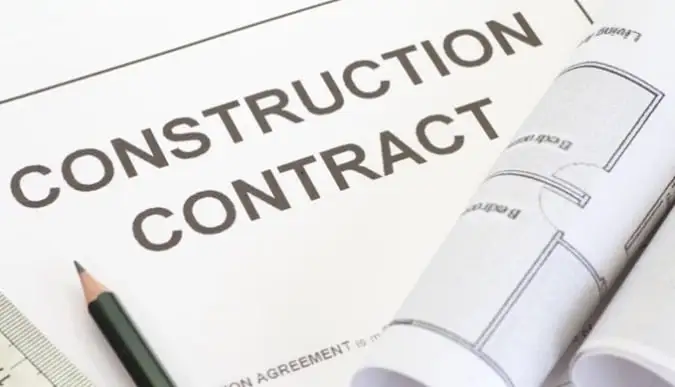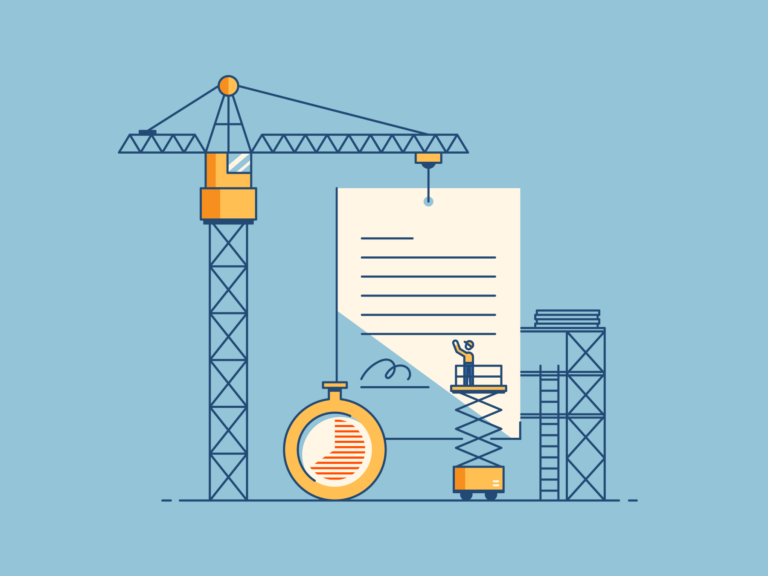The essential builder’s tool kit: bricks, mortar, struts, Oh, and some AI
It is a commonly held view that the Architectural, Engineering, and Construction (AEC) industry has traditionally been one of the late adopters of technology, relative to many other industries. Construction companies operate on thin margins leaving little to invest in tech, especially if it means being an early adopter and taking on an element of risk. In fact, there is an understandable focus on risk and that has also contributed to the still very significant analog component of doing business in this industry.
However, the digital transformation wave that has swept through many other industries is now beginning to modernize the construction industry. Momentum has accelerated since the onset of the pandemic and forward-looking companies are increasingly willing to adopt new digital ways of working. As Tom de Ridder of ValueBlue USA, a digital transformation consultancy, pointed out in Construction Magazine this year, some of the more advanced tech trends such as robotics and AI are “becoming a fundamental part of the construction lifecycle.”
In common with most private sector companies, organizations in this sector are motivated to adopt technology that will either help them save money or make money, preferably both and do it with as little risk as possible. Given the complexities of large-scale construction jobs with multiple stakeholders: contractors, sub-contractors, suppliers, and other companies within the supply chain, coupled with the very competitive nature of the business, it means that margins are always under pressure leading to a very necessary focus on efficiency. This degree of complexity and the focus on cost means keeping a tight understanding of obligations and commitments between parties is essential. A poorly written contract for instance that hasn’t taken proper account of how cost overruns are handled, could turn a seemingly profitable job at the outset into one which is loss-making.
AI in Construction: Contracts
Contracts are the lifeblood of any business and in construction they are essential in ensuring projects are delivered on time and on budget and indeed, fairly across the supply chain. In addition, with potential health and safety issues concerning buildings, assigning accountability is also key. As with any contract between two parties there is a pre-execution and a post-execution aspect to be considered. The pre-execution phase: the negotiation, redlining and eventual agreement and signature is typically the most intense and time consuming, requiring lawyers to negotiate on behalf to their companies or clients, to drive the best position without compromising the agreement being fulfilled fairly and in full. In the post-execution phase the contract is set-in-stone and the focus shifts to what has been agreed – essentially how the contract is provisioned.
As stated, the pre-execution phase is the most time-intensive and the most expensive. Digital transformation of this aspect can certainly help reduce cost, avoid errors, and speed up the process. One of the tools that the more advanced construction companies are deploying is that of artificial intelligence (AI), particularly in the area of contract review.
AI can be used to assist in the review of construction contracts by providing a summary of the key terms and identifying any areas that may be of concern. This can help to speed up the review process and ensure that all relevant clauses are considered.

Automating the review of Construction Contracts
AI can be used to review construction contracts in a number of ways. For example, it can be used to:
- Generate a list of potential risks associated with a contract
- Analyze the contract to identify any clauses that could be interpreted in different ways
- Highlight any contractual terms that could be improved or changed
- Compare the contract against similar contracts to identify any areas that could be improved
- Review and revise contracts like an attorney
In each of these cases, AI can help to speed up the contract review process and improve the accuracy of the results.
For example, if a construction company is using AI to review a contract, the AI system can be trained to identify potential risks associated with the contract by analyzing the text of the contract and flagging up any clauses that could be interpreted in different ways.
Similarly, the AI system can be used to analyze the contract to identify any areas that could be improved or changed. For example, the AI system could be used to compare the contract against similar contracts to identify any areas that could be improved.
Contract Negotiation in the Construction Industry
Today, artificial intelligence is ubiquitous in a wide range of industries, including the construction industry. We’re already familiar with some use cases, such as voice-activated assistants (e.g. Alexa), self-driving cars, and precision marketing (e.g. Amazon recommendations – “people like you bought this”). Other use cases include more niche ones such as insurance claims analysis or, in the case of BlackBoiler, contract review.
Natural Language Processing (NLP) is at the heart of what BlackBoiler is focused on. The technology behind our tool can be trained to recognize key concepts in large texts – in our case, contracts or agreements. The machine (as in BlackBoiler’s patented technology) learns to look for specific concepts, phrases, clauses, and so on and surface issues or discrepancies with company playbooks to speed up the negotiation process.
The most expensive part of the contract lifecycle is the negotiation phase – when the most expensive resources, lawyers, are engaged to negotiate a contract between their organization and a third party. The negotiation process of sending a marked-up or redlined version of the draft contract can be extremely tortuous and time-consuming. For some contract types, there is quite a lot of commonality within a industry. For instance, Non-Disclosure Agreements (NDAs) broadly have the same idea – to protect the confidentiality and establish potential liabilities should that confidentiality be broken. Automating the redlining process makes a lot of sense here. Major construction companies are executing thousands of NDAs a week, so if a lawyer has to negotiate each one from scratch that’s a significant time sink. Contract review technology such as BlackBoiler can reduce the contract review time by up to 75% for standard contracts like NDAs. However, this is not limited to common sets of contracts such as NDAs, Mater Service Agreements or End User License Agreements.
Some industries have more specific contracts that are plentiful and, in some cases, complex. Construction is one such industry. For example, negotiating time and materials, lump sum, and unit priced contracts for complex, multi-party projects require multiple rounds of negotiations and redlining. AI-based platforms like BlackBoiler significantly reduce the “time-to-agreement” by speeding up this redlining process. By training the AI to identify clauses that deviate from the construction company’s playbook and offer up company-approved alternative language, the review cycle can be significantly reduced, risky clauses identified, and those red flags dealt with more quickly and favorably.
An AI contract review software such as BlackBoiler allows lawyers and law firms to subject their documents to instant, automatic contract reviews, accelerating revenue capture through faster deal closure and contract agreement, decreasing costs and freeing up internal resources for more complex tasks.
In the AEC industry, buildings, roads, physical infrastructure, etc., will always need to be designed, built, and maintained. There is always a physical output. But, getting it done efficiently, on-time and on-budget, with as much risk-mitigation as possible requires a strong focus on the “back-office” stuff such as how contracts are being negotiated and agreed. It is a little trite to say, but in the future construction companies will need more than just building materials in their tool kit – they will need advanced technology as well!


